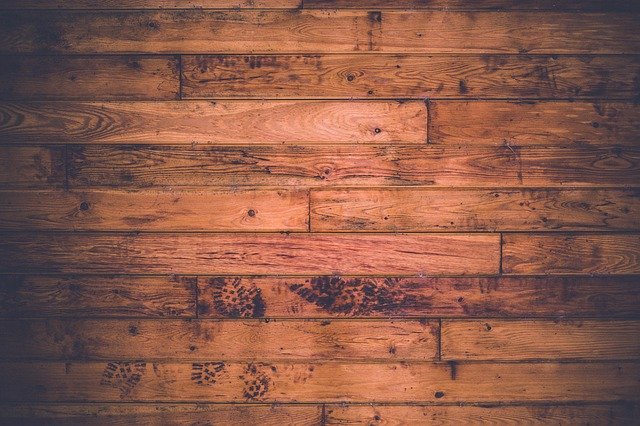
Are landlords responsible for squeaky floors? If you are living in an apartment with a squeaky floor, you might ask the same question. In this post, let’s talk about whether or not landlords should be held responsible for fixing this issue.
If you are reading this article, there is a pretty good chance that you are complaining about those squeaky floors in your apartment. I was in the same situation several years ago when I was living in the suburbs area.
I was complaining not only to the squeaking floors but also to the noisy neighbors who were living above and beside my room. It was a real challenge for me because I was working in the night shift job at that time.
But my biggest problem was the squeaky floor above me. I could barely sleep during the day. I could hear the children playing and all the footsteps that caused the floors to squeak.
When it comes to fixing the issue like this, who is responsible? Who should fix those squeaky floors? In this post, let’s talk about this matter and I hope that you’ll be enlightened.
So, are landlords responsible for squeaky floors?
The truth is that there is no single answer to this question. But in most cases, landlords are not responsible for fixing those squeaky floors unless the lease says so. It is important to remember though that the rules covering this matter may be dependent on the state’s regulations.
As far as I am concerned, the rules on apartment rentals vary from one state to another. And sometimes, it also depends on the agreement between the tenant and the landlord.
Yes, the landlord should be responsible for fixing the unit before he opens it for lease. However, that’s more of a business decision. In most cases, the landlord is not required to fix the apartment unit first before allowing to rent it.
However, landlords are required to make sure that the unit is habitable and safe. The squeaking floors are, unfortunately, do not directly bring harm to the tenants and therefore not a safety issue. This means that landlords can open an apartment unit with squeaky floors to the potential tenants.
As a tenant, you should practice due diligence to make sure that everything is fine.
Table of Contents
Things to Remember Before Renting an Apartment
The usual practice is that the potential tenant will see the apartment before deciding to rent or not to rent the unit.
This is a very crucial time for the tenant to make sure that he/she agrees with all the conditions that govern the whole duration of his/her stay. During the inspection, the landlord should inform the tenant about the possible problems of the unit.
Small problems such as noisy neighbors and squeaky floors should be discussed to the potential tenant. Once the tenant has signed the lease, it is clear to him/her all the conditions.
Below are the things that you should check out before you rent an apartment.
1. Check the Pipes
Before signing a contract, make sure that you have checked all the pipes. The common pipes are gas pipes, water, and sink. Make sure that they don’t have problems or leaks.
2. Check the Faucets, Shower Heads, and Water Supply
Potential problems may stem from dysfunctional faucets, showerheads, and insufficient water supply. These things are essential needs when living in an apartment. There should be cold and hot water available. And lastly, also check the toilet. It has to flush properly and in good condition.
3. Check all the Electricity and Appliances
Lights are very important. The unit should be equipped with operational electric devices and lightings. Also, make sure that all the air conditioner and heater units are functional.
4. Walls and Windows
Walls should also be checked if they can be closed and locked. The walls are also important to see if they are free from any cracks or holes. Noise problems are often the result of having weak walls.
5. Noise
Renting an apartment is a bold move. So you need to make sure that everything is good. In most cases, we forget to check the possible noise that could potentially cause a disturbance. If you are a student, this one is very important to you. Observe the surroundings or nearby rooms or ask the landlord about whether or not the neighbors are noisy. Trust me it is hard to study when you have a noisy environment.
6. Check Squeaky Floors
If you are renting an apartment that is primarily made of wood, squeaking issue is common especially in those apartments built in the 1990s. If you don’t want to live in regrets, make sure that you have checked the floors or stairs before signing the lease.
These are just a few things that you should observe before renting an apartment. But this simple first step is crucial in attaining peace of mind and healthy well-being during your whole stay.
Quick and Simple Ways of Fixing Squeaky Floors
What if you are already in the situation wherein squeaky floors bring you the daily problem? Is there anything you can do to minimize the issue?
The good news is that there are quick ways you can do to somehow fix floor squeaking. In this section, I will share with you some techniques. I hope you find them helpful.
1. Insert A Piece of Wood Against the Floor Joist
It is very important to remember that the floor squeaks primarily due to subfloor separating from the floor joists. The squeaking sound stems from the nail as it slides in and out of the joists.
The first and easy technique you can do is to insert a piece of wood against the floor joist. This will fill the large gap from beneath the floor and support the subfloor. In the same manner, the scrap will prevent the floor from moving up and down every time somebody steps on it
2. Use a Shim for Smaller Gaps
Even a small gap will cause squeaking on wood floors. The quickest and easiest way to fix this is by using a shim.
Insert a shim into the gap between the joist and the subfloor. This will easily fix the gap and eliminate the squeaking.
However, you need to be careful when doing this technique. Do not insert shim that is larger than the gap because it will only widen the gap and create more squeaking.
3. Tighten the Subfloor to the Floor
Squeaking is the result of a loosened connection between the subfloor and the floor. The quickest way to fix it is to fasten the subfloor to the floor.
To do this, you need a screw that will do the job. However, make sure that you have a correct measurement on the width of the subfloor and the floor. Then choose a screw that is long enough to hold the two sections without getting through the floor.
These three techniques are the simplest ones that you can work under the floor. There are other techniques you can use but they are only workable from above in which in most cases, you don’t have access.
In my experience as a tenant for many years, there is not much you can do to fix the squeaking floors in the apartment you are renting. If the techniques are not applicable in your situation, the only feasible way is to soundproof your apartment room.
Related Article: How to Quiet Creaky Wood Floors
Are Landlords Required to Provide Soundproofing Between Floors?
Unfortunately, in most cases, no. However, this might be arbitrary depending on the state you are living or on the lease you signed before occupying the apartment unit.
There are instances wherein a tenant is required to use carpet to the majority of the wooden floor to prevent noises that would stem from the hardwood. Some tenants use rugs and runners to reduce noise when somebody is walking on the wooded floor.
If you are dwelling in the multi-family apartment, you are expected to fully accept the noise. This is a common problem in those apartments that are stacked one on top of another. Once you occupy the unit, the landlord will seldom entertain the demands of the tenants. Remember that you have signed a contract before.
This is the reason why reading the lease before signing it is a crucial step. Not knowing the potential problems could result in a serious headache along the way.
Soundproofing the squeaky floor, in my experience, is not something you can demand or even request from your landlord. This is unfortunate but it is true.
Another problem is that most lease prohibits the tenants to do any modification of the unit. Even if you decide to soundproof the unit, the landlord may not allow it. And lastly, soundproofing is a bit expensive. In this case, everything seems to work against the tenant.
So the best strategy to avoid these problems is to NOT rent an apartment that has squeaky floors. This is the only power you have over the landlords. So check the apartment unit thoroughly before deciding to reside in it.
Final Thoughts on Are Landlords Responsible for Squeaky Floors
It is sad to say that landlords are not responsible for fixing squeaky floors in a wooden apartment unless the lease says so. In my experience, the landlord will only act on an issue if it pertains to the security of the tenants.
What I recommend is that, before renting an apartment unit especially if it is made of wood, is to carefully check everything from faucets, water supply, to squeaky floors.
Inspecting the whole unit before signing the lease is a crucial process to avoid possible headaches. The common problem in most tenants is that they just sign the contract without doing due diligence. I made the same mistake before. Trust me, it is degrading to see yourself helpless.
I hope you get something from reading this post that will help you.
Thank you for reading.
Related Questions
Why does my floor squeak in winter?
Winter is a cold season but the indoor structures remain dry. Those drier areas may cause a contract with another structural component such as wood which in turn creates movement. And the movement creates the squeaky sound that you hear. Similarly, the dry condition inside creates trim gaps.
Do rugs help squeaky floors?
Placing rugs will not eliminate the issue of the squeaking floor. However, it will help reduce the floor noise by keeping everything upon it stable. Rugs will anchor furniture making those stuff immovable. Without movement, there will be no squeaking.
Should I worry about squeaky floors?
No. There is nothing you should worry about squeaking floors except the noise that it brings. The whole house will not collapse and it is not a sign of termites and other major structural issues. So don’t panic. You can take a look at the techniques shown above and see what you can use to fix the issue.
Is a squeaky floor dangerous?
Not at all. As mentioned, there is nothing to worry about squeaky floors. The floor will not collapse. Squeaking is just the result of the pieces of the structure moving against one another.

